Dictator is a concept from ancient Rome, this isn’t a concept for China except as a modern insult to the legitimacy of its leadership. China has always been ruled by an emperor, that’s currently Xi and pretty much no normal person in China has an objection. Xi explains in Chinese to the Chinese people that Western democracies serve as facades for opaque sources of power that don’t have the best interests of the people in these countries in mind. Is he wrong?
In the United States, we have as president a man who’s been a sick joke his entire life, who’s now senile, installed through fraud, and intended to be kept in office by locking up his opponent. It’s bad practice to invite any foreign leader to the U.S. and then insult him, normally China takes showing respect through protocol very seriously.
For example, they got pissed at Obama’s arrogance since he was nothing more than a puppet. On his last trip to China, they only put the ramp up to the back entrance of Air Force One to remind him that he was just an n-word who belongs on the back of the bus. Highly unsubtle but the American media didn’t bring it up as far as I’m aware.
I didn’t have time to cover Xi’s visit to San Francisco when it happened, but since a previous article is on politics going to the streets in Europe, it’s worth mentioning in this article about politics taking to the streets in China.
Biden calling Xi a dictator after coming all the way to visit at Biden’s invitation seems to have been taken in stride by the Chinese, he’s senile and they know this even if they’re too polite to say it. One must always understand with Xi or Putin being polite to Americans is that they do it knowing that if America got its way their nations would be collapsed, and their American counterparts would grin as their corpses dangled from lampposts.
The other thing Biden brought up was fentanyl. China isn’t responsible for America’s fentanyl crisis. China isn’t making fentanyl. Legitimate Chinese companies, which manufacture chemicals on a mass scale that can be utilized in further chemical production, sell these chemicals to other companies that appear legitimate and thus could be using them to produce any number of legitimate things, sometimes these companies really do also produce legitimate things. Thus, there’s no end-user certificate for this stuff as if they were selling rocket launchers. It ends up in Mexico where the actual fentanyl gets produced.
China hasn’t weaponized fentanyl to destroy America, but America has weaponized Chinese people to do this to China. In mainland China proper, the average person conceptualizes all Chinese as being part of China and, for the vast majority, this is true. However, there are two ethnically-Chinese parts of China that don’t feel the love.
These would be Hong Kong and Taiwan. The U.S. exploits real sentiment in these places to create problems for China by turning sentiment into action to embarrass the CCP and create a casus belli. Taking such catalysts into account and bearing in mind that Xinjiang and Tibet constitute a massive percentage of the the PRC’s geography to de-colonize, one can appreciate that more is at play than “democracy” or the ability to conduct parades to expose children to homosexuality.
In 2008, President Ma Ying-Jeou had taken office seeking to improve relations with the mainland to the economic benefit of Taiwan. He was a party insider born during the KMT retreat before his parents reached Taiwan, meaning many of the local Taiwanese viewed him as a mainlander trying to sign over their country.
Also, nearly all of the younger generations in Taiwan view themselves as Taiwanese, even if their grandparents fled China. The demographic context is important because it meant that an election where somebody like Ma could win was unlikely after he finished his second term.
In Taiwan, mainlander rule was conducted via “The White Terror” and martial law until the 1990s following a massacre of the locals in the late 1940s after the heavily-provoked locals tried to kill the mainlanders in a classic pitchfork and torches style when the KMT merely had a garrison on the island before the retreat.
After the end of martial law, the political violence returned which is too much to explain or catalog in an article. At one point, the locals tried to lynch a representative sent from China. A local official even managed to rush past his security and throw him to the ground, pretty crazy stuff in a place with the one of the lowest crime rates on the planet.
As China opened and Taiwan continued to grow, the two economies became intertwined and Ma brokered a series of advantageous agreements with China under the premise of neither declaring independence nor reunification, and the explicit intention of peace. There was already no turning back, so Taiwan might as well get the biggest carrots it could, and Beijing could offer some pretty big carrots to a tiny island. By not embarrassing Beijing, that was good enough for the sovereignty status quo.
This wasn’t good enough for the U.S., which in preparation for the current situation, viewed economic integration as going too far already. Many of the locals agreed and the younger ones were willing to take action and that’s what happened with the usual NGOs behind it all. The CIA hasn’t directly overthrown governments for a long time. They stormed the legislature and occupied it so the legislation couldn’t be passed.
The opposition, which literally reported to the AIT fortress to take orders, won the presidency in the ensuing elections and that sort of pragmatism was out the window. This “Sunflower Movement” was roughly the same time as the Maidan in Ukraine, and look where we’re at now. Both rooted in genuine organic sentiment, and both channeled into violence (varying degrees, obviously) for globalist purposes. The consequences for Taiwan ensued from China but it remained on the back burner until the specter of war was raised following the realization by the powers that be of failure in Ukraine.
In the meantime, there was still plenty of trouble to cause for China with students in Hong Kong of the variety that transpired in Taiwan following the end of martial law. I honestly couldn’t have imagined that scale of unrest in such a cosmopolitan global hub like Hong Kong which I’d known in better years, but it got pretty bad and many on the Dissident Right noticed the students were using black bloc antifa tactics. People got set on fire, among other issues.
The unrest in Hong Kong convinced the Taiwanese that the “one country, two systems” offer had been a sham all along. This was working out nicely for Uncle Sam.
In hubs like Hong Kong and Shanghai, there are significant Western populations. Not as percentage of the cities’ total, but enough that you could find your social scene and eat Western every day if you wanted. In Hong Kong, Westerners were getting pretty spooked because we understood that the Chinese security apparatus could descend on the place. This wasn’t the deal anyone thought they had up until that point. Everybody knew that if the students gave up and went home, they’d eventually disappear. “Bu jien luh” as they say in Chinese.
Propaganda from the government was coming out worthy of a WWF vignette from when I was a kid, this is as the city was essentially in open rebellion. The students were fighting but the rest of the population agreed with their sentiments even if they wouldn’t go that far and didn’t want to lose their jobs or worse. The younger you are, the less cognizant one tends to be of these sorts of things, so I get it. This one is pretty funny, even the bus driver leaps out of his vehicle with patriotic joy to sing:
Again, this was fueled by the U.S. exploiting the real organic sentiment of people in Hong Kong who have a distinct identity from the Chinese, whom they look down upon. Perhaps they had no choice about rejoining China, but they were promised certain prerogatives that were being trampled on. Meanwhile, many of their fellow Chinese countrymen considered them traitors who should be dealt with harshly.
Over on Taiwan, a KMT politician suspected of being connected to organized crime managed to get elected mayor of the second largest city, Kaohsiung, an enormous port located in the south of the island which is the stronghold of the Taiwanese in contrast to Taipei in the north, which is the stronghold of the mainlanders. Kaohsiung is close enough to Hong Kong that its harbor is used as cheaper yacht parking for Hong Kong tycoons. These are two very well-connected cities.
This mayor’s next move was to run for president promising to make everyone rich through closer ties with China, this was as the unrest unfolded in Hong Kong. A measure to have him recalled was introduced. In support of it, a rally was to be held ahead of the vote. His supporters also organized a rally. The stage was set for potential violence on an epic scale.
In contrast to Charlottesville, the government handled the situation in a very responsible manner without a dishonest and malicious agenda. First, it was ensured that the two rallies were on opposite ends of the city. Second, since there’s only one police force in Taiwan, they were brought in from all over the island. The city subway system was the most likely connection point between the two sides, so there were a bunch of cops at each station and two cops on each subway car.
I was there on a business trip, enjoying lunch that Saturday when a local friend invited me to tag along. I figured, why not? As it turned out, when people realized the situation would be peaceful, they brought their kids and it was a carnival atmosphere. There was a little girl driving a toy car dragging a stuffed figure of the mayor and Winnie The Pooh (represents Xi Xinping, banned on the mainland internet) behind it. One lady set up stations where attendees could beat them in effigy with a mallet. This was as violent as it got.
What was interesting is that they put 400,000 onto the streets for this rally which marched across the city and when you’re in a crowd that massive you can’t really comprehend its size. Over in Hong Kong, they put 800,000 on to the streets this same Saturday afternoon. In Taiwan, a foreigner could attend this sort of thing, whereas in Hong Kong you’d have to be insane and there’d be consequences such as being detained on suspicion of working for the CIA. I don’t recommend you attend any protest in a foreign country, for the record.
I initially thought this was what COVID was about since it provided a way to put an end to all of the street action, which otherwise would probably have kept escalating, without doing another Tienanmen Square massacre (CIA was behind the protest). Clearly, the propaganda videos weren’t working. After seeing all of this up close, one developed the sense that something really bad was coming next, not that I ever thought the world would be shut down soon or that I’d wind up in a European gulag.
The thing about taking politics to the streets and other physical locations is that it’s effective at scaring the people in charge. The West is under the grip of parasites deathly terrified of new Nuremberg rallies which is what they saw with Donald Trump and his crowd of working-class Americans in their MAGA hats.
My previous article on what happened in Ireland is another nightmare scenario for EU officials. Everyone in Europe has sufficient provocation to take to the streets and having Irish football hooligans set an example that this is possible is the last thing they want.
Europeans often live concentrated in urban areas where it’s easy for them all to get together quickly. Thus, if the hooligans get turned into minute men, their governments won’t have the time to prepare a screw job like the FBI pulled off on Jan. 6th. We’re at certain logistical disadvantages for this sort of thing in America, not that I’m advocating for anything violent or illegal whatsoever.
There are far more people than parasites so if they all go out to protest the parasites, there’s very little they can do to single everyone out. The thing about the parasites is that while a sovereign might turn on them, generally revenge came in the form of a mob. Don’t underestimate how much this scares them when they engage in hysterics about something like Dublin or January 6th. Even that Occupy Wall Street goofball stuff freaked them out.
Well, that’s it for today.

I’m proud to officially announce my candidacy for the office of Dogcatcher.

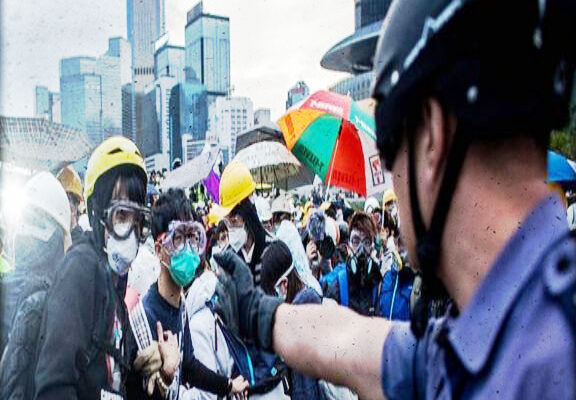
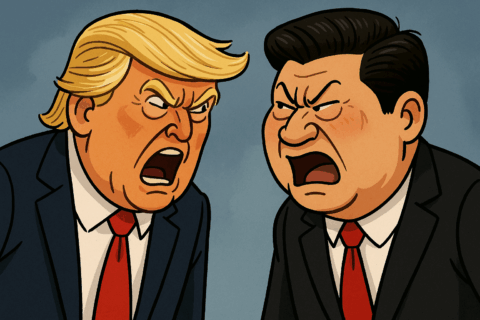
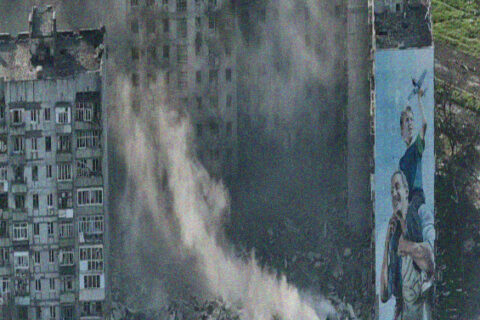
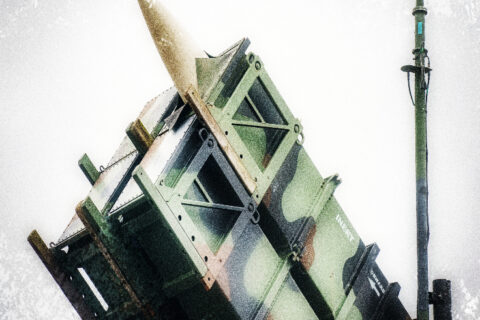
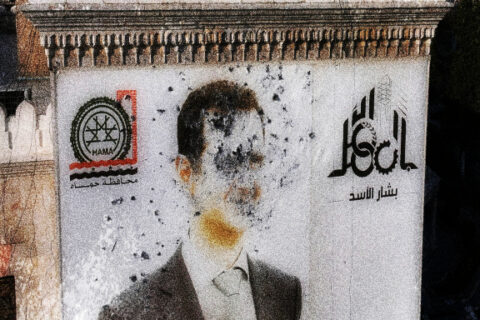
The China and Taiwan issue is the textbook definition of some things are better left unsaid. In exchange for protecting the pride and global standing of the CCP by not promising independence, the Taiwanese get de facto independence and can do basically whatever they want (while getting lucrative contracts with the mainland). In comes the United States, who publically mocks China for not seizing Taiwan on the global stage, putting the CCP in a bind: Do they let Taiwan go, stabbing their electorate in the back after promising reunifiction and look like a bitch, or do they resign themselves to an unnecessary war to maintain public facing, in the process destroying Taiwan and wasting thousands of lives that cannot afford to be wasted? We really are living in a society, fr fr.
They’d never need to do an invasion, all they’d need to do is prohibit certain financial transactions. The military stuff is mainly to maintain China’s international reputation and show the domestic audience it has the capability and willingness to do something.
The chance of a hot war between China and Taiwan is improbable, but there is always that 1% chance something does kick off. Personally, I would imagine what would spark an invasion would be if the United States does something stupid like putting nuclear missles in Taiwan, kind of what the Soviets did in Cuba. Chances are low, but are never zero.